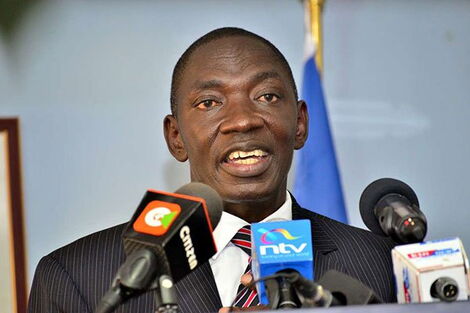Why Kenyan Farmers Are Now Moving To Tanzania, Uganda
A concern has been raised over a drop in acreage that is under maize and wheat in the North Rift – a region considered the country’s food basket.

Statistics from the Uasin Gishu County Agriculture department indicate that this year, farmers only planted 16,000 acres of wheat, compared to 18,0000 that had been witnessed two years ago.
The drop is amid reports that some large-scale farmers from the region were moving to Uganda and Tanzania due to the low cost of production in the two neighboring countries.
Kipkorir Menjo, the Uasin Gishu Director of Kenya Farmers Association (KFA) blames the situation to the government’s failure to put in place measures to protect a farmer.

“The cost of production must be looked at seriously if we want farming to be taken seriously here in Kenya. We need to move away from talk and act,” Menjo notes.
“Farmers are now moving to other countries because there the cost of production is low and the respective governments want to ensure they are food secure hence ready to do anything for the farmers,” he added.
It is estimated that the cost of producing a 90-kilogram bag of maize in Uganda is around Ksh1,500 compared to Ksh2,500 here in Kenya.

“We’re all selling our produce in COMESA but there is a huge disparity when it comes to production cost. Those in Uganda and Tanzania have an upper hand on this issue,” noted a farmer from Ziwa, an area renowned for hosting large-scale maize and wheat farmers.
Most of the time, cheap maize and wheat imports from the two countries find their way to Kenya, negatively affecting the local prices for the produce.
Uasin Gishu County Executive Member for the Agriculture Department Samuel Yego admits that local farmers are disadvantaged when it comes to the cost of production when compared to the East African Countries.

“The national government introduced tax on farm inputs like pesticides and this has pushed the cost of production even further. That combined with low prices and competition from cheap imports makes it hard for a farmer,” Yego notes.



























